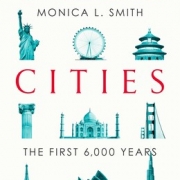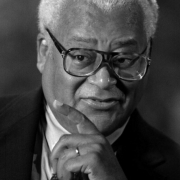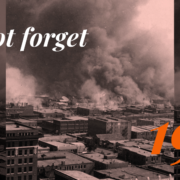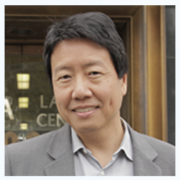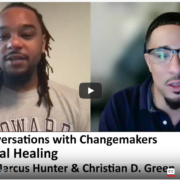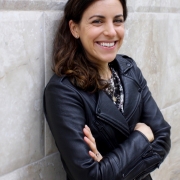By Lara Drasin
What makes someone want to “do good?” Dr. Daniel Fessler of UCLA’s Anthropology department—the inaugural director of the UCLA Bedari Kindness Institute and 2018 recipient of the UCLA Gold Shield Faculty prize—is trying to figure that out, and sat down with LA Social Science to share some thoughts on the subject from an evolutionary perspective.
Fessler and his colleagues are currently conducting research on altruism, or “pro-social behavior.” He says that altruism, or moments in which a person goes out of their way to help another, can actually be “contagious:” witnessing the kindness of others can trigger an emotional reaction in us and inspire us to commit altruistic acts ourselves. The team of researchers are interested investigating what specifically triggers those reaction—or the “machinery inside the mind,” as he puts it, that causes us to make decisions as to whether to be helpful or not. This includes the role that our expectations play in the process. Fessler says that idealists are most likely to be affected, while cynics—or people who are prone to not expect the best from others—are less likely to have this reaction.
What makes someone idealistic or cynical? In addition to studying altruism, Fessler also looks at media and its effects, including how the messages we consume through media may impact the expectations we have of others. “When you choose to repeatedly consume information about the darker aspects of human behavior,” he said, “you’re shaping your own expectations about how other people will behave. It makes you less likely to respond pro-socially when there’s an opportunity to behave in a cooperative situation with others.”
Fessler says that there’s reason to believe our minds process information presented to us through media as though it’s firsthand experience. For example, people who watch a lot of local news overestimate the likelihood that they’ll become victims of violence.
“I love action movies as much as the next person, but I don’t watch them anymore,” he said. “I intentionally avoid realistic depictions of violence because I think it increases our estimation that other people are hostile and violent toward us, and that’s not an orientation I want to have.”
Fessler admits that it is “early days” when it comes to making definitive claims on the psychological effects of media consumption, but he draws a parallel to tobacco. He notes that though it’s legal to buy tobacco products, one can’t pick up a pack of cigarettes without seeing messages reminding us that it is harmful. “I could see a day when we want the same kind of public information campaigns that we have for tobacco use for media consumption,” he said, suggesting that whether or not to consume certain types of media could then become a matter of personal choice, but informed personal choice. “The best thing we can do as scientists is study these things and inform people,” he said, “so that everyone involved can recognize the consequences of their decisions more fully.”
When it comes to his students, Fessler likes to focus on subjects that the students can connect to in their own lives. Everyday subjects including questions like why women tend to be evaluated based on looks; why physical altercations tend to spur from trivial disagreements; and the relationship between economic inequality and violence are all discussed. “It’s important that I teach students in the way that they understand the personal impact of the information,” he said. Usually, conversations take place in a learning environment that Fessler fosters to invoke the same small-scale, face-to-face interactions in which people normally learn outside the context of formal education. He hosts the “FessLab,” where students are invited to assist Dr. Fessler with research outside of class. “The students named it FessLab,” he said, laughing. “It seems kind of self-aggrandizing to me.”
Fessler says that what he loves about UCLA is that it is full of scholars and students who are excited, interested, collaborative and genuinely want to make the world a better place. “That’s not commonly found,” he said. “There is so much good work being done here.”
To learn more about the establishment of the new UCLA Bedari Kindness Institute, please click HERE.

